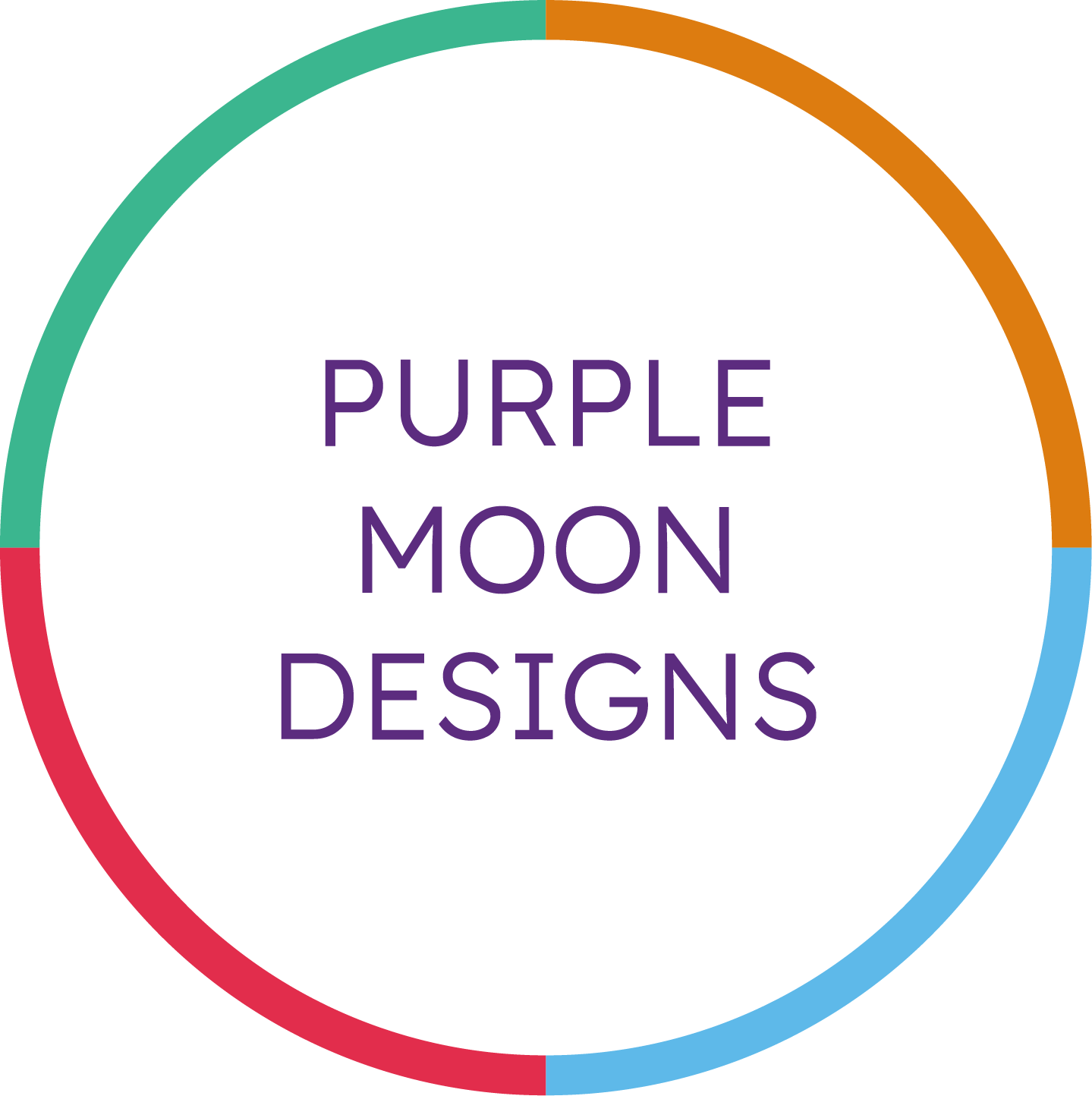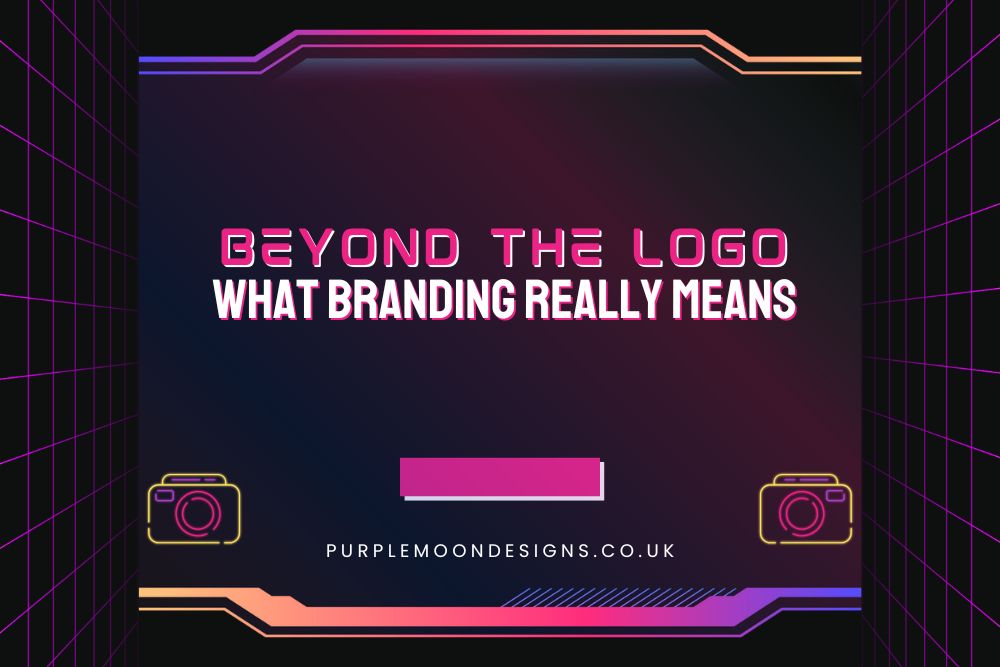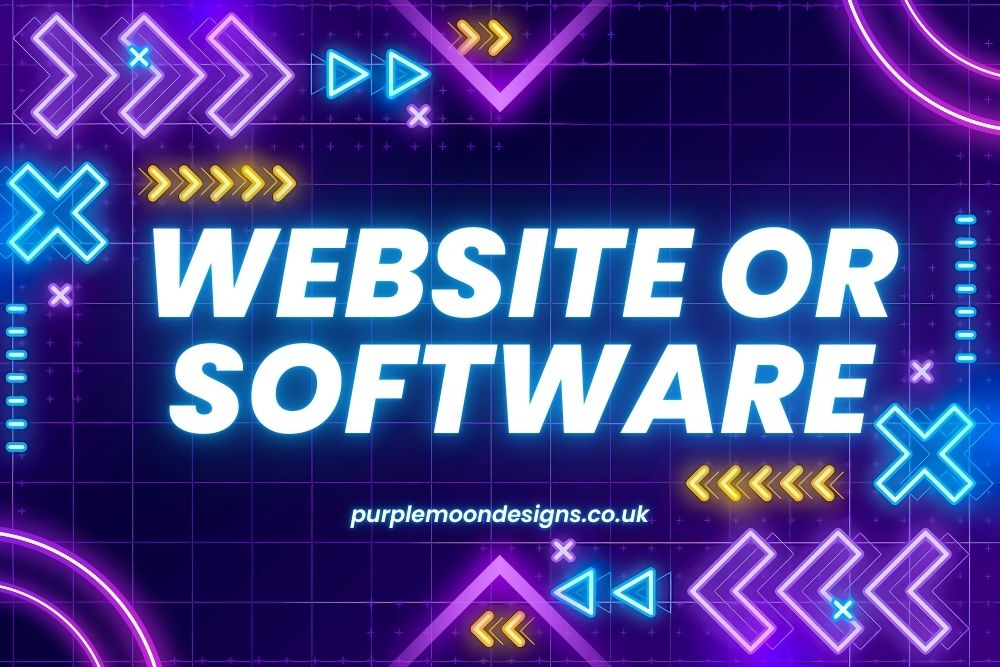Tl;dr DIY website design is great for something fast as long as you’re good and familiar with the platforms. Our recommendation is not to use website builder but jump on a CRM system that has a website builder. If you’re looking for professional look, features and to save your energy on things you don’t know – hire a professional website design company. But please vet them beforehand. As there are plenty who’ll not deliver what you’re after.
For business owners creating a website, the choice between a do-it-yourself (DIY) approach and hiring a Professional Web Designer is significant. Each option has its advantages and drawbacks, and the decision often depends on your business goals, available time in your diary, and the importance of a polished online presence that reflects your brand’s unique identity.
In this blog, Purple Moon Designs explores when DIY web design might be an intelligent choice and when professional web design is the better option to take your business to the next level.
Understanding Web Design
What is Web Design?
Web design is the art and science of creating and building a website, encompassing everything from the layout and visual elements to the overall user experience. It requires a unique blend of technical skills, such as coding and programming, and creative skills, like graphic design and content creation. Effective web design is crucial for establishing a successful online presence, as it significantly impacts how users interact with your site and how search engines rank it. A well-designed website not only attracts site visitors but also keeps them engaged, ultimately driving business goals.
Brief History of Web Design
The journey of web design began in the early 1990s with the advent of the World Wide Web. Initially, web design was rudimentary, consisting of basic HTML pages filled with text and simple images. As the internet evolved, so did web design, with the introduction of CSS (Cascading Style Sheets) allowing for more sophisticated layouts and JavaScript enabling dynamic content. The rise of responsive design in the 2010s marked a significant milestone, ensuring websites were accessible and functional across various devices, including mobile phones and tablets. Today, web design is a dynamic and ever-evolving field, continually adapting to new trends and technologies to meet the demands of modern users.
Understanding DIY Web Design with a Website Builder
What is DIY Web Design?
DIY web design involves creating your own website using website-building platforms like Wix or Squarespace. These tools are user-friendly, featuring drag-and-drop editors and pre-designed templates that make building a website more accessible for non-technical users. However, while these platforms simplify the process, they may be better suited for some situations. You can also use a CRM system to achieve both website and a customer relationship management in a single go. But more on that in the next post.
Pros of DIY Web Design:
Cost-Effective: DIY web design is typically more affordable, making it an attractive option for startups or small businesses with more time than budget.
Control: It offers hands-on control, allowing you to make updates or changes to your website anytime. As long as you master these features of how to use it.
Quick Setup: For simple projects or temporary needs, DIY can help you get your website live faster. It’s possible to get your website live within a day. It all depends on the quality you’re trying to achieve and skills available. Otherwise might take months and be half-baked. DIY platforms often offer templates that can be adapted into responsive websites, ensuring your site looks great on mobile phones, desktops, and tablets.
Cons of DIY Web Design:
Limited Customisation: DIY platforms often rely on templates that can limit creativity and make your site look generic. It’s hard to get custom features or connect to third-party tools. Additionally, DIY platforms may struggle to create a dynamic website that automates content creation and stores results as completed pages, which can enhance functionality.
Time-Consuming: Learning to optimise your site for functionality and SEO can be challenging for beginners. Or even getting the right layout, content and call-to-action working for you in general.
Risk of Amateur Design: DIY websites may need more polish and professionalism to make a strong impression. Also a risk of being duplicate as your competition.
Understanding Professional Web Design
What is Professional Web Design?
Professional web design involves hiring an expert or agency to create a Custom Ecommerce Website tailored to your brand’s needs. This process goes beyond aesthetics, incorporating SEO optimisation, responsive design, and functionality for a seamless user experience.
Pros of Professional Web Design:
Tailored Branding: A professional designer ensures your website aligns with your brand identity, helping you stand out in a competitive market.
Optimised Performance: Professional designs prioritise user experience (UX) and search engine optimisation (SEO), making your site more visible and user-friendly. Including connecting to the tracking tools to check on your website’s performance. Professional designs also focus on optimizing the technical aspects for better performance.
Technical Support: A professional handles complex aspects like hosting, security, and troubleshooting. Including website development. Which means it makes your work easier, less demanding and requires only for you to approve or provide the feedback.
Cons of Professional Web Design:
Longer Timelines: Professional web projects can take weeks or even months to complete, which may not suit tight deadlines. It highly depends on the company you hire (as some work with DIY sites) and the requirements of the project. But in the end, it’ll be delivered.
Hiring risk: There are a lot of website designers, website design agencies, freelancers and gurus. Their experience can be anywhere from fresh 0 to 20 years plus. You’re risking your brand and budget when choosing the agency to deliver. We had taken over a few website projects over the years from “designers” and “developers” that could not deliver what they promised. It’s important to vet and get the right strategic approach to your website design process.
P.S. we do have a neat guide 7 and a half Crucial things to grill your web develop with before signing a contract check it out the free download. https://www.purplemoondesigns.co.uk/free-guides/7-and-a-half-crucial-things-to-grill-your-web-develop-with-before-signing-a-contract/
Web Design Principles for Success
Key Elements of Web Design
Creating a successful website involves several key elements that work together to provide an optimal user experience and achieve business objectives. These include:
- Layout and Navigation: A clear and intuitive layout is essential for helping users navigate your site effortlessly. This includes well-organized menus, buttons, and other interactive elements that guide users to the information they need.
- Visual Elements: Incorporating high-quality images, videos, and graphics can significantly enhance the user experience, making your website more engaging and visually appealing.
- Content: Compelling and relevant content is crucial for attracting and retaining site visitors. High-quality content not only informs and entertains but also helps establish your authority in your industry.
- Responsive Design: With the majority of users accessing websites on mobile devices, responsive design is vital. It ensures your site looks and functions well on all screen sizes, providing a seamless experience for all users.
- Search Engine Optimization (SEO): SEO is essential for making your website visible to search engines. By optimizing your site for relevant keywords, you can improve your search engine rankings and attract more organic traffic.
By integrating these key elements, web designers can create a successful website that not only attracts and retains site visitors but also supports your business goals.
When to Choose DIY
For Tight Budgets or Simple Needs:
If your business is in its early stages or your website requirements are essential, DIY web design can be a practical and affordable solution. It’s ideal for small Blogs, personal projects, or short-term campaigns. Understanding your target audience can help you decide if a DIY approach is suitable. Our advice would be to use a CRM system. It’ll have a website builder and help you manage customers from the get-go.
We do offer CRM systems from £120 a month https://www.purplemoondesigns.co.uk/services/digital-marketing/
For Market test:
DIY platforms allow you to quickly test ideas or validate business concepts before committing to a professionally designed site. Once again a CRM system and ad campaign would help you get the data, stats and feedback from the market.
When to Hire a Professional
For Strong Branding and Target Audience:
If your goal is to build a lasting impression and differentiate your business, a professionally designed website is invaluable. Custom designs enhance credibility and resonate more effectively with your audience. It saves you time and lets you focus on your area of expertise – your work to make the money.
For Complex Features and Responsive Web Design:
Businesses needing ecommerce websites, e-commerce functionality, member portals, or integrations with third-party tools will benefit from professional expertise.
For SEO and Accessibility:
A professionally designed website is more likely to rank well on search engines and provide an inclusive user experience. Each web page should be optimized for SEO and accessibility. It provides flexibility required to compete online and on Google results. Unless your business is super niche, it’s a must.
The Hybrid Approach: Best of Both Worlds
At Purple Moon Designs, we understand that every business has unique needs. That’s why we offer a hybrid solution to bridge the gap between DIY and complete custom design.
Such a site can offer the best of both DIY and professional design, providing flexibility and functionality tailored to your business objectives.
Our Entry-Level Option
We combine design professional websites with custom branding elements, delivering a polished website at a fraction of the cost of a fully custom site. This option includes:
- Single page website design with everything about your business
- Contact forms and tracking tools
- Website hosting FREE for the first year
- A content management features and training.
This approach ensures your website is professional, functional, and budget-friendly — perfect for running ads to and a starting online presence.
Conclusion
The decision to go DIY or hire a professional depends on your goals and expertise. While DIY offers a simple and fast way to get started (if you’re familiar with their platforms), a professionally designed website can provide the sophistication and performance needed for long-term success.
We help businesses find the perfect balance. Whether you’re ready for a fully custom website or looking for a simple solution, our team is here to bring your vision to life.
Contact Purple Moon Designs today to explore how we can create a website that sets you apart and drives results!





